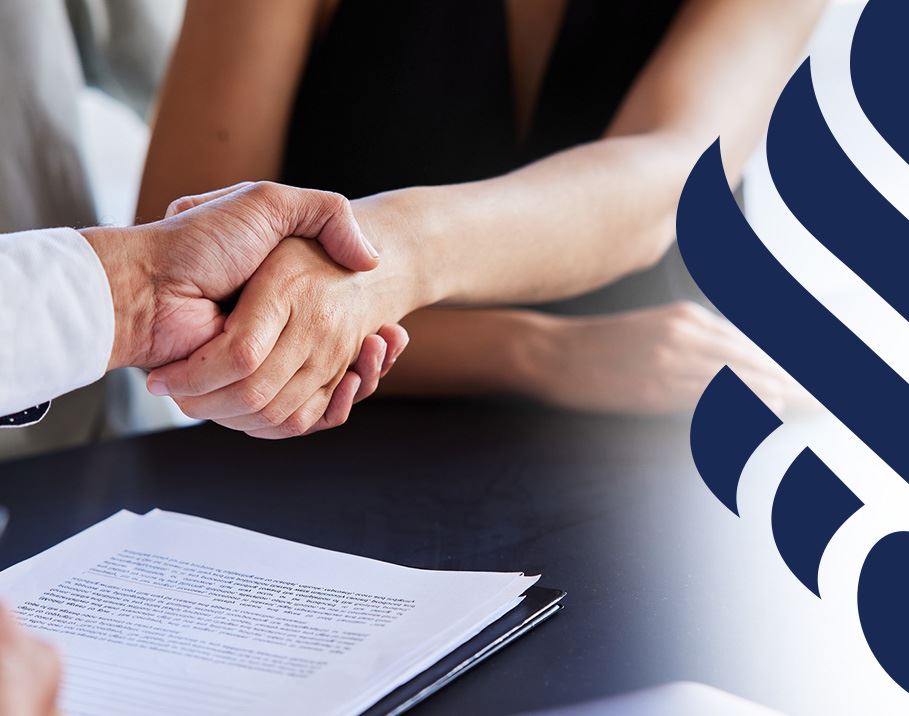
New York City Elevator Accident Lawyers
Fighting for Elevator Accident Victims in New York City
Elevator accidents can result in severe injuries and even fatalities, leaving victims and their families grappling with physical, emotional, and financial hardships. In NYC, a city full of skyscrapers and high-rise buildings, elevator accidents are, sadly, not uncommon. If you or a loved one has been injured in an elevator accident, it's crucial to seek legal guidance from an experienced lawyer who can help you pursue the compensation you deserve.
At Sutton & Smyth, LLP, our New York elevator accident attorneys can help you understand your legal options and take the steps necessary to get you the compensation you deserve. Our firm is skilled at investigating these accidents, holding responsible parties accountable, and pursuing claims for our clients’ injuries.
No matter the complexity of your case, our elevator accident lawyers in New York City are prepared to do whatever it takes to protect your interests and deliver the best possible outcome for you and your family.
If you were injured or lost a loved one in an elevator accident, call our firm today at (866) 935-1862 or send us a message online to discuss your case in a free consultation.
How Do Elevator Accidents Happen?
Elevator accidents can happen for various reasons, and determining liability often involves a thorough investigation into the circumstances surrounding the incident. These accidents can lead to injuries, fatalities, and property damage.
Common causes of elevator accidents include:
- Cable, rope, or brake malfunction: Elevator cables can snap or become damaged, leading to sudden drops or uneven movement, or the elevator's braking system may fail to engage, causing it to move uncontrollably.
- Misleveling: When an elevator fails to align properly with the floor, passengers may trip or fall when entering or exiting the elevator.
- Faulty wiring: Faulty wiring or electrical components can cause fires or other electrical hazards.
- Electrical failures: Problems with the elevator's electrical system can result in power outages, sudden jerks, or stops, which can cause passengers to lose balance and fall.
- Improper installation: Errors during the installation process can compromise the safety and functionality of an elevator, leading to accidents and injuries.
- Inadequate maintenance: Neglecting routine maintenance and inspections can lead to the gradual deterioration of elevator components.
- Improper repairs: Incorrect or substandard repairs can introduce new safety risks.
- Manufacturing defects: Defects in the construction or design of elevator components can lead to accidents.
- Abrupt stops: Elevators that stop abruptly due to mechanical failures or electrical issues can cause passengers to lose balance and sustain injuries.
- Sudden acceleration or deceleration: Elevators that accelerate or decelerate too quickly can cause passengers to lose their footing and suffer injuries.
- Overloading: Elevators have weight limits for safety reasons. Overloading an elevator beyond its capacity can lead to malfunctioning, sudden stops, or even collapse.
Who is Liable for an Elevator Accident?
Liability in an elevator accident can vary depending on the specific circumstances of the incident, including the cause of the accident, the parties involved, and the relevant laws and regulations.
Here are some potential parties who may be held liable in an elevator accident:
- Property owner or manager: The owner or manager of the building where the elevator is located can be held liable if the accident was a result of their failure to maintain the elevator properly, perform required inspections, or address known safety issues. They have a duty to ensure the safety of the elevator for users.
- Elevator technician or service personnel: Individuals or companies responsible for installing, inspecting, or repairing elevators can be held liable if their actions or omissions directly contributed to the accident. Negligent work, improper installation, or failure to identify and address safety concerns can be grounds for liability.
- Elevator designers and engineers: If the elevator's design or engineering was flawed and contributed to the accident, the designers and engineers involved in its creation could be held liable.
- Elevator manufacturers: In cases where a manufacturing defect is a primary cause of the accident, the elevator manufacturer may face product liability claims. This means they can be held responsible for injuries or damages caused by a defective product.
- Contractors or construction companies: In cases where elevator accidents occur during construction or renovation work, the contractor or construction company responsible for the project may be held liable for inadequate safety measures or negligence that led to the accident.
- Government entities: In some cases, government agencies responsible for inspecting and regulating elevators may be held liable if they failed to conduct proper inspections, enforce safety regulations, or address known issues.
- Elevator users: In rare cases, elevator passengers may also share some liability if their actions or misuse directly contributed to the accident. For example, trying to force open elevator doors or jumping inside the cab can lead to accidents.
Determining liability in an elevator accident often requires a thorough investigation by experts to establish the cause and responsible parties. Liability may be shared among multiple parties, and it is imperative to consult with legal professionals who specialize in elevator accident cases to understand and pursue a potential claim.
At Sutton & Smyth, we specialize in complex premises liability cases, including those involving elevator accidents. If you were injured or lost a loved one in a New York elevator accident, we can help. Call (866) 935-1862 to learn more in a free consultation.

Our Satisfied Clients
Read What They Say About Us

-
“Highly recommend! Thank you!”
“Daniel was very knowledgeable, super attentive, and quick to inform me throughout the entire process.”- Samantha S. -
“I would highly recommend this law firm.”
“He continuously updated me throughout the entire process and answered all my questions.”- A. L. -
“Thank you so much for listening to us when no one else would.”
“Leigh Sutton & Daniel Smyth made sure that his voice was heard and he was compensated to the max!”- Mari K. -
“I always felt like I was in great hands.”
“My experience working with Dan was working with someone transparent, helpful, and consistent, and I'm really happy I met him when I did.”- Erin R. -
“Obtained better than expected results on all cases referred...”
“I am an attorney that has referred a number of sensitive cases to the attorneys at Sutton & Smyth, LLP.”- Michael L. -
“Daniel made me feel at ease throughout my entire process.”
“He is very knowledgeable, super attentive, and quick to inform and respond.”- Catherine M. -
“This the law firm for you!”
“Very good at his job and I'm beyond grateful and satisfied with the job he's done.”- Dominique McCloud -
“I would absolutely recommend them!”
“Extremely helpful counsel during a stressful time in my life!”- Kelly P.


REcent Case Victories
Our top priority is to devise customized legal strategies that are tailored to the unique legal needs of our clients, no matter how simple or complicated their situations might be.
-
1.775 Million Bus Accident
-
$1.7 Million Property Damage Due to Fire
-
$1.25 Million Apartment Building Slip and Fall
-
$775K Motorcycle Accident
-
$750K Ceiling Collapse in Rental Apartment
-
$750K Restaurant Slip and Fall
Proving Negligence in an Elevator Accident Case
Proving negligence in an elevator accident case requires gathering evidence to demonstrate that the responsible party failed to uphold their duty of care, leading to the accident and resulting injuries. Here are some types of evidence that can be used to support a claim of negligence in an elevator accident case:
- Maintenance records: Maintenance records detailing the history of elevator inspections, repairs, and maintenance can provide insight into whether the elevator was properly maintained and serviced. Any lapses in maintenance or unresolved issues may indicate negligence on the part of the property owner, maintenance company, or elevator manufacturer.
- Inspection reports: Regular inspections are required to ensure elevators comply with safety standards and regulations. Inspection reports can reveal any violations, deficiencies, or safety hazards that were overlooked or neglected, potentially indicating negligence.
- Surveillance footage: Video footage from security cameras inside or near the elevator can capture the events leading up to the accident. This footage may show unsafe behaviors, mechanical failures, or other factors contributing to the accident.
- Eyewitness testimonies: Statements from individuals who witnessed the accident or observed unsafe conditions in the elevator can provide valuable firsthand accounts of what occurred. Eyewitness testimonies can corroborate the victim's version of events and help establish liability.
- Expert opinions: Expert witnesses, such as engineers, elevator technicians, or safety specialists, can analyze the evidence and offer professional opinions on the cause of the accident. Their expertise can help determine whether negligence played a role and who should be held accountable.
- Past complaints or incidents: Any history of previous elevator accidents, complaints, or safety violations related to the same elevator or building may indicate a pattern of negligence or disregard for safety concerns.
- Elevator design and installation records: Documentation related to the design, installation, and construction of the elevator can reveal whether any design flaws, installation errors, or manufacturing defects contributed to the accident.
- Medical records: Medical records documenting the nature and extent of the victim's injuries can help establish the severity of the harm caused by the accident, as well as the need for compensation for medical expenses, pain and suffering, and other damages.
- Building codes and regulations: Compliance with building codes, elevator safety regulations, and industry standards is essential for ensuring elevator safety. Any violations of these standards may indicate negligence on the part of the responsible parties.
By gathering and presenting compelling evidence, you can strengthen your claim and pursue fair compensation for your injuries and losses. A New York City elevator accident attorney from Sutton & Smyth can help assess the evidence, build a strong case, and advocate for your rights after an accident.
How Long Do I Have to File a Lawsuit?
Elevator accidents fall under New York's premises liability law, which holds property owners accountable for personal injuries caused by unsafe premises. In New York, the statute of limitations for premises liability claims is three years, meaning you have three years from the date of an elevator accident to file a lawsuit.
If someone you love suffered fatal injuries in an elevator accident, immediate family members or the representative of the victim’s estate have two years from the date they passed away to bring a wrongful death claim. In either case, seeking legal advice as soon as possible is in your best interest.
What Damages Can I Recover?
You can generally recover economic and non-economic damages in an elevator accident claim. Economic damages include all directly quantifiable expenses from your personal injuries, such as medical bills and lost wages. In contrast, non-economic damages refer to less-tangible consequences that nonetheless warrant settlement, such as pain and suffering.
Our New York City elevator accident lawyers at Sutton & Smyth will fight to get you compensation for all of your losses, which may include:
- Medical bills
- Lost wages
- Reduced earning capacity
- Property damage
- Pain and suffering
- Loss of consortium
- Loss of enjoyment of life
What to Do After an Elevator Accident
If you have been involved in an elevator accident in New York, you may have suffered severe and permanent injuries. Building owners and their insurance companies know many tricks and loopholes to stop you from getting the compensation you need to cover your losses.
To protect your right to compensation, make every effort to follow these steps after an elevator accident:
- Call 911. Explain the situation and request an ambulance if you (or anyone else) immediately need to go to the hospital. If you are stuck in the elevator, request help from the fire department.
- Gather evidence. Document as much as possible before you leave the scene. Take photos and videos of your elevator injuries, any apparent damage to the elevator, the elevator's interior, the entry portal to the elevator, and any other relevant items. Be sure to note the specific elevator that caused the accident if multiple elevators are in the bay.
- Report the accident. Find whoever is currently in charge – most buildings will have an on-site/on-duty manager – and inform them of the accident in the elevator. Request that a written accident report be created and obtain a copy. If the elevator (or its adjacent bays) had security cameras, ask for a copy of the relevant footage.
- Gather contact information. You will need the property owner's name, address, and phone number. You should also get the names, addresses, and phone numbers of anyone on the elevator with you or anyone else who saw what happened immediately before or after the accident. Their testimony could be important later, and you will need a way to get in touch.
- Seek medical attention. Even if you do not require an ambulance, go to the emergency room immediately after you leave the scene. Explain what happened and highlight your known injuries to the doctor who sees you. Remember that some personal injuries may not be initially apparent, so you should still see a medical professional even if you feel like you are "fine" after an elevator accident.
- Reach out to Sutton & Smyth, LLP. The sooner you get in touch with our legal professionals, the better. Our lawyers are ready to work on investigating your case and seeking the money you need for your personal injuries.
Contact our elevator accident attorneys in New York today. We can help you seek maximum compensation for your injuries and losses. Call us at (866) 935-1862 or send us a message online to arrange a free consultation.